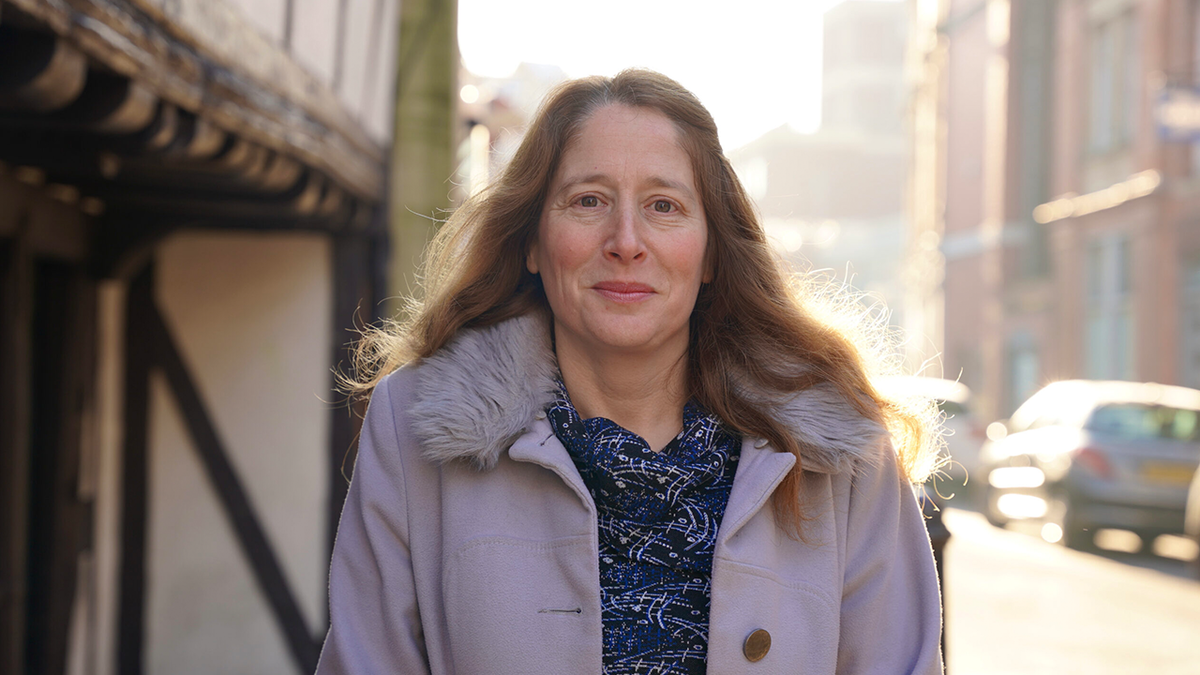Pro-life activist sees the 'worst of humanity' while protesting at abortion clinics
Mark Houck joins 'Fox & Friends' to discuss the violence against pro-life advocates after two were brutally beaten outside a Planned Parenthood facility in Baltimore.
Police in the United Kingdom have loosened bail restrictions on a Christian woman who was arrested twice for praying silently outside an abortion clinic in Birmingham, England.
Pro-life activist Isabel Vaughn-Spruce will no longer be prevented by the West Midlands Police from silently standing near abortion clinics, though she continues to face potential charges, according to a statement from the U.K. chapter of Alliance Defending Freedom.
The prohibition against standing within the vicinity of an abortion clinic was part of Vaughn-Spruce's bail conditions in the wake of her arrest earlier this year.
"While I am grateful my bail conditions have been lifted, and the police have acknowledged that peaceful presence is not in and of itself a crime, I am concerned that the police were able to restrict my right to peacefully and silently pray for three months and so soon after I was acquitted for the same conduct," Vaughan-Spruce said in a statement.

Isabel Vaughan-Spruce was arrested earlier this year for praying silently outside an abortion clinic in Birmingham, England. (Alliance Defending Freedom UK)
"I received no update from the authorities as to the progress of the investigation, and I still don't know how my actions could be considered in any way intimidating," she said. "To have prosecution hanging over my head for a seemingly indeterminate period for the simple act of praying, thinking toward God, is deeply unsettling and unjust."
Birmingham introduced a Public Health Protection Order (PHPO) last September banning "protesting, namely engaging in any act of approval or disapproval or attempted act of approval or disapproval, with respect to issues related to abortion services, by any means" near abortion clinics.
"This includes but is not limited to graphic, verbal or written means, prayer or counseling," the order reads.
Vaughn-Spruce, a Christian and director of the U.K. March for Life, was first arrested in December and again in March for her silent prayer outside the abortion clinic in Birmingham.
After her March arrest, West Midlands Police imposed bail conditions that prohibited Vaughn-Spruce from attending public spaces even beyond the zone established by the PHPO.
Vaughn-Spruce's legal defense, which is being funded by ADF UK, argued that the extended exclusion zone beyond the PHPO was "unnecessary" and "disproportionate" and "effected for an improper purpose."
Vaughan-Spruce's legal counsel argued that silent prayer is protected under Article 9 of the European Convention on Human Rights. Police conceded last week that the PSPO does not ban her from being within the zone, but noted that her case has been referred to CPS, and she could still be charged, according to ADF UK.
PRIEST CHARGED AFTER PRAYING OUTSIDE ABORTION CLINIC DECRIES CRIMINALIZATION OF THOUGHT

Isabel Vaughn-Spruce and Jeremiah Igunnubole, legal counsel for ADF UK. (Courtesy of ADF UK)
"Isabel has endured months of her rights being improperly restricted by West Midlands Police without any reference to the prosecution or the courts," ADF UK Legal Counsel Jeremiah Igunnubole said in a statement.
"Her experience provides a clear example of the dangers of recent public order reforms, which have handed broad powers to the police to restrict fundamental rights with no accountability or training and come with no specific legal protections for freedom of speech and thought. Police should not have the power to restrict harmless conduct, much less punish the peaceful exercise of fundamental rights."
"Censorship zones have no place in a free and democratic society, which is in part defined by the extent to which it protects the peaceful exchange of views and ideas," he maintained.
CLICK HERE TO GET THE FOX NEWS APP
"Permitting these rights, peacefully exercised, to be restricted at the discretion of police officers is a dangerous new turn for the UK, which has a longstanding legal tradition of protecting civil liberties," Igunnubole added.

